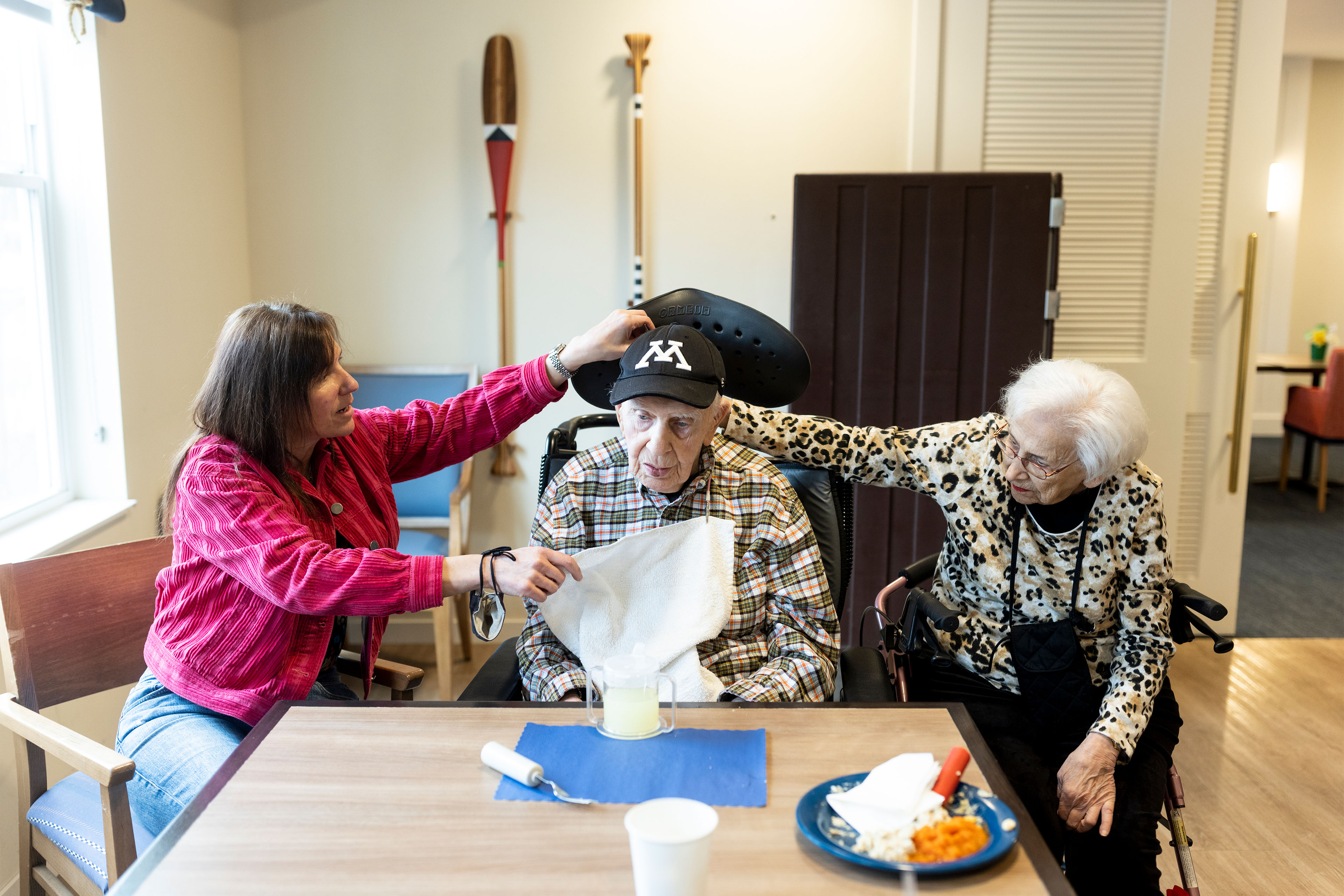Learn about innovative Memory Care programs for cognitive well-being.
Learn about innovative Memory Care programs for cognitive well-being.
Blog Article
Exactly How Helped Living Facilities Enhance Quality of Life for Those With Dementia
Aided living centers play a crucial function in enhancing the lifestyle for individuals with dementia by executing customized care strategies that provide to their unique requirements. These settings incorporate structured tasks with psychological support, promoting a sense of community while guaranteeing security and freedom. The assimilation of appealing programs and family members involvement even more improves the citizens' experience. The intricacies of dementia care continue to evolve, motivating a more detailed assessment of just how these centers adjust and introduce to fulfill the difficulties dealt with by residents and their families. What implications does this have for future treatment versions?
Personalized Treatment Program
(Dementia Care Charlotte)In numerous situations, people with mental deterioration call for tailored assistance that resolves their special requirements and choices. Personalized care strategies are important in assisted living settings, as they ensure that each resident gets suitable focus and solutions. These strategies are created collaboratively, involving medical care professionals, caretakers, and member of the family to create a comprehensive summary of the person's medical background, cognitive capabilities, and personal interests.
A well-structured individualized treatment plan typically consists of specific objectives related to health and wellness administration, everyday tasks, and social involvement. It makes up the person's cognitive decline while promoting self-reliance and self-respect. Routine evaluations and updates to the care strategy are vital, as they enable modifications based upon the citizen's progressing condition and choices.
Secret components of these plans usually entail medicine monitoring, behavior support methods, and dietary standards tailored to the individual's demands (Memory Care). By concentrating on individualized treatment, aided living facilities can foster an encouraging atmosphere that improves the top quality of life for individuals with mental deterioration, inevitably contributing to their general well-being and happiness. This personalized technique appreciates the individuality of each local, ensuring they get the compassionate care they need

Involving Tasks and Programs
Involving homeowners in meaningful tasks and programs is vital for improving the lifestyle for individuals with dementia. These activities not just provide pleasure however additionally promote cognitive function and promote social communication, which can alleviate sensations of seclusion frequently experienced by homeowners.

In addition, customized programs are essential in making sure that each homeowner's unique preferences and capacities are recognized. This tailored method motivates involvement, improves self-confidence, and offers a feeling of success.
Additionally, regular analyses of locals' interests can help staff change and adjust activities to much better fit developing demands. By prioritizing interesting tasks and programs, aided living facilities can dramatically boost the general experience and psychological wellness of individuals dealing with mental deterioration.
Safe and Supportive Atmosphere
Developing a risk-free and encouraging setting is necessary for individuals with dementia, as it directly impacts their health and lifestyle. Helped living facilities are developed with details attributes that advertise security while fostering a feeling of safety and convenience. These atmospheres prioritize accessibility, with layouts that lessen confusion and encourage independence, permitting locals to browse their surroundings extra easily.
Safety steps, such as protected entrances and exits, protect against straying and unapproved gain access to, which are vital factors to consider for people with dementia (Memory Care). Team member are trained to identify the distinct requirements of locals, supplying tailored support and supervision to guarantee their security. Moreover, the consolidation of soothing colors and familiar things can help in reducing stress and anxiety and disorientation, developing a more soothing ambience.
Along with physical safety and security, emotional assistance is critical. Facilities typically use team that are not only skilled in caregiving yet also educated in empathy and communication, cultivating count on and rapport with locals. This all natural approach adds to a caring setting where individuals really feel valued and understood, eventually boosting their total top quality of life.
Social Interaction and Area
A supportive environment not just prioritizes safety and security but also fosters opportunities for social communication and community interaction, which are important for people with dementia. In assisted living centers, organized tasks and communal rooms urge homeowners to link with each other, lowering feelings of isolation typically experienced by those with cognitive problems.
Social communication plays a considerable function in enhancing psychological wellness and cognitive function (Memory Care). Engaging with peers in team tasks such as games, arts and crafts, or workout not only stimulates cognitive capacities however likewise nurtures a sense of belonging. Facilities frequently arrange events that promote socializing, enabling citizens to develop relationships and share experiences, which can be specifically helpful for those with dementia
Moreover, a dynamic neighborhood ambience can enhance the general top quality of life for residents. Personnel participants are educated to promote interactions and assistance homeowners in forming purposeful links.
Household Involvement and Assistance
Family members participation is essential in supporting people with dementia in assisted living settings. Proactively involving relative not just provides emotional comfort to homeowners yet likewise fosters a sense of belonging and connection in their lives. When family members join care preparation and everyday activities, they contribute valuable understandings about the individual's preferences, history, and needs, which can enhance customized care.
Additionally, routine family members brows through can dramatically boost the emotional wellness of homeowners, lowering sensations of seclusion and anxiousness. Relative can additionally assist in preserving cognitive function by engaging their liked ones in acquainted conversations and tasks. This communication enhances personal identity and assists homeowners feel valued and understood.

Conclusion
Finally, assisted living facilities dramatically improve the lifestyle for individuals with mental deterioration with customized treatment plans, involving activities, and a safe environment. These components foster cognitive excitement, psychological wellness, and a feeling of self-reliance. Furthermore, regular social communications and solid family participation add to significant links and emotional support. Jointly, these elements produce look at more info an all natural technique to care that addresses the distinct demands of people with dementia, promoting overall health and self-respect.
Report this page